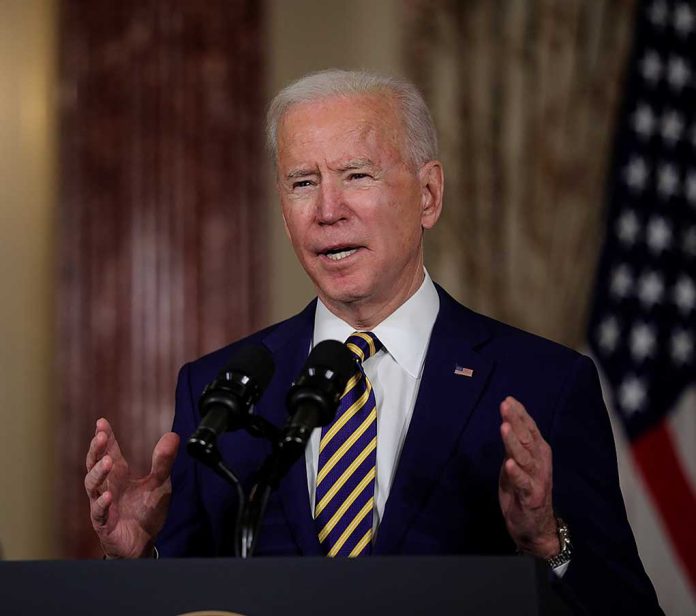
Controversy surrounds the Biden administration’s allocation of over $3 million to Palestinian Authority Security Forces for firearms training.
Key Takeaways
- The Biden administration allocated over $3 million to the Palestinian Authority Security Forces for firearms training.
- This funding is part of a larger $20 million regional security package.
- Critics are concerned about the PASF’s ties to terrorism.
- The funding comes amid PASF requests for additional U.S. funding.
Allocation Details
The Biden administration allocated more than $3 million to the Palestinian Authority Security Forces (PASF) for training purposes involving firearms and ammunition, as reported by The Washington Free Beacon. This funding emerged as part of a broader $20 million plan aimed at regional security initiatives across the West Bank, Gaza Strip, Lebanon, and Jordan.
The package revealed in a confidential congressional notice met with criticism over the administration’s decision to potentially embolden forces associated with acts of hostility. Representative Michael McCaul vocally opposed this decision, citing the PASF’s historical ties to terrorism and its concerning role in about 1,500 attacks on Israelis in recent times.
100 times President Biden Supported Israel
One of the most essential values in Judaism is gratitude. People prefer to think of themselves as independent and not in need of any assistance. Offering our appreciation to someone who helps us is an important trait in recognizing… pic.twitter.com/vUKDEOELaa
— Uri Pilichowski (@RationalSettler) November 14, 2024
Concerns About Terrorism Links
Concerns arise due to PASF’s associations, with many members linked to the Palestinian Fatah movement and potential terrorist activities. A recent incident involved a PASF officer also identified as a commander within the Al-Aqsa Martyrs’ Brigades, who died in an altercation. Both PASF and the Al-Aqsa Martyrs’ Brigades collectively mourned his passing.
The State Department reassured stakeholders that the firearms and ammunition acquired with this funding are strictly for training. Despite these assurances, doubts linger regarding the supervision and actual application of this aid, given PASF’s controversial history and ongoing challenges in maintaining order in volatile areas.
A Re-kindled Controversy
The PASF seeks an additional $680 million from the U.S. over the next four years, further inflaming concerns among critics who remember the Trump administration’s freeze on funds due to terrorism concerns. The Biden administration’s move to restore an annual $45 million to PA security services, amid claims of indirect affiliations with terrorist groups like Hamas, presents another contentious policy reversal.
“The PASF have demonstrated an ongoing inability to maintain order in the West Bank, a fact made more concerning by emerging reports of the group’s ties to terrorism in the region,” Rep. Michael McCaul told the Free Beacon.
There’s emblematic similarity between PASF members and groups like Fatah, contributing to persistent scrutiny over any U.S. aid allocations. Training for the PASF will occur at Jordan’s International Police Training Center as part of the development efforts, but the true impact of such initiatives remains opaque amid ongoing accusations and unrest.





